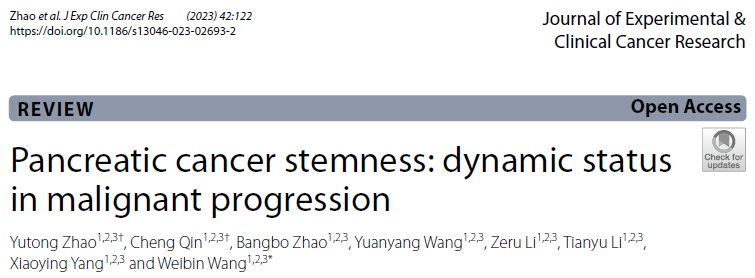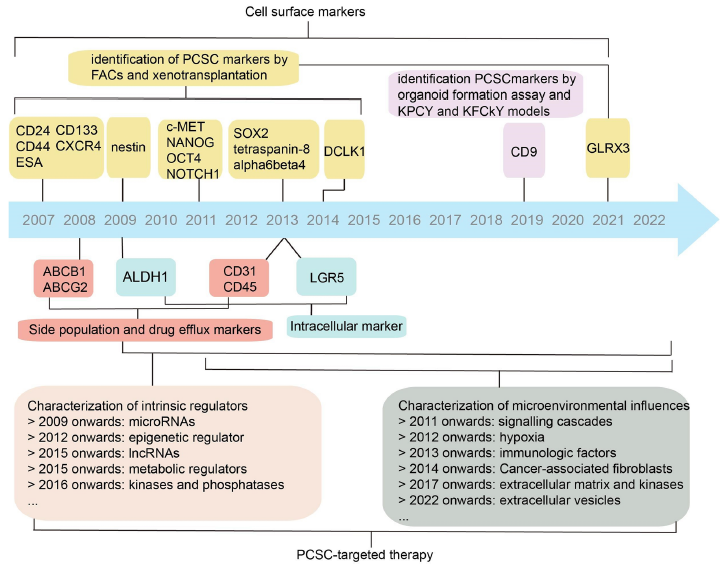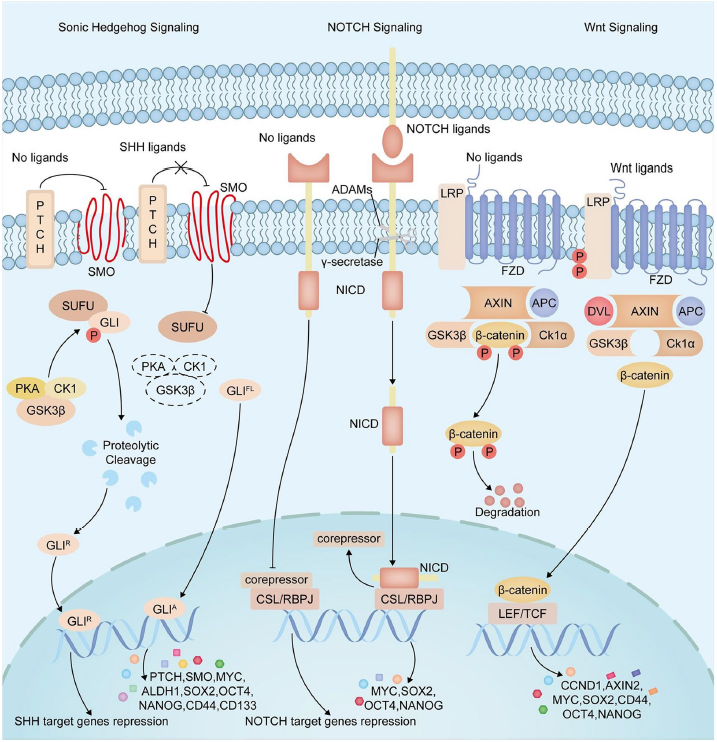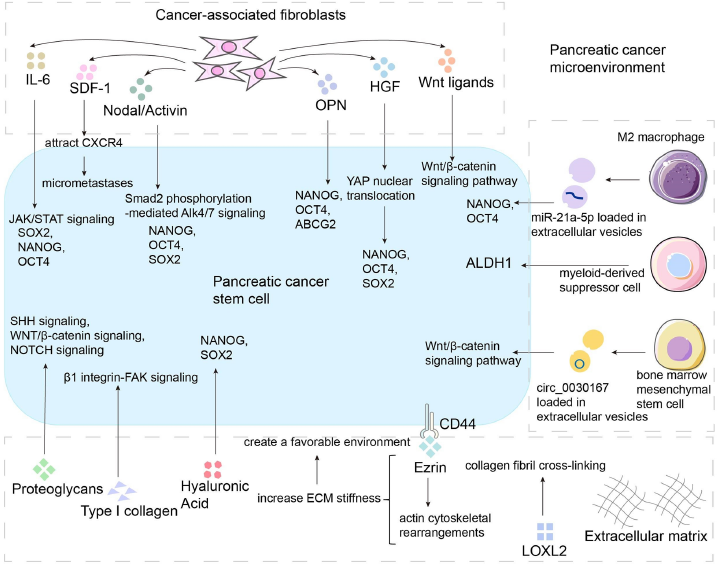The research team led by Professor Wang Weibin from the Department of General Surgery at PUMCH published a review in the Journal of Experimental & Clinical Cancer Research (IF=12.658), summarizing the recent research progress on pancreatic cancer stem cells (PCSCs). The review discusses the plasticity of PCSCs and their molecular mechanisms in promoting the progression of pancreatic cancer, and explores the clinical application potential of targeting PCSCs for treatment. The research was supported by the National High Level Hospital Clinical Research Funding.

Pancreatic cancer (PC) is a highly malignant digestive system tumor marked by atypical early symptoms, rapid progression, low surgical resection rate, poor chemotherapy sensitivity, and lack of targeted drugs. The cancer stem cell theory has opened up new avenues for targeted treatment of PC. In 2007, Li et al. first identified a subpopulation of cells with stem cell features in PC. Subsequent studies have identified multiple markers, such as CD133, CXCR4, and c-Met, for the identification and extraction of PCSCs. However, more and more studies have found that PCSCs exhibit heterogeneity in vivo. Undifferentiated PCSCs can differentiate into tumor cells of different stages, and differentiated pancreatic cancer cells can also be reprogrammed to acquire stemness under specific conditions. Additionally, the biomarkers of PCSCs may vary significantly across different tissue samples, making it difficult to effectively identify and isolate them using a single universal marker.
Therefore, without a clear-cut specific marker, the identification of PCSCs remains a challenge. Currently, the identification of PCSC subpopulations mainly relies on “the combination of multiple biomarkers, coupled with tumorsphere formation” for verification through different angles.

▲Research progresses on PCSCs in recent years and a summary of markers from early studies
Currently, some studies have focused on targeting the pathways related to the stemness features of PCSCs, such as proliferation, progression, migration, and drug resistance, showing promising clinical application prospects. The maintenance of PCSC stemness is regulated by multiple signaling pathways, among which the Sonic Hedgehog, NOTCH, and WNT/β-Catenin pathways are the most widely reported.

▲PCSC markers and the impact of relevant pathways on tumor progression
Some studies have delved into transforming the special microenvironment that maintains the survival of the PCSC subpopulation into a microenvironment that suppresses their survival and growth, shedding a new light on coping with PC recurrence, metastasis, and drug resistance. The currently known factors regulating the stemness of pancreatic cancer cells include various intracellular transcription factors, epigenetic modifying enzymes, non-coding RNAs, as well as extracellular matrix remodeling and signaling molecules secreted by fibroblasts and immune cells in the microenvironment.

▲The regulation of the microenvironment on the pancreatic cancer stemness
Written by Zhao Yutong and Gan Dingzhu
Edited by Gan Dingzhu and Chen Xiao
